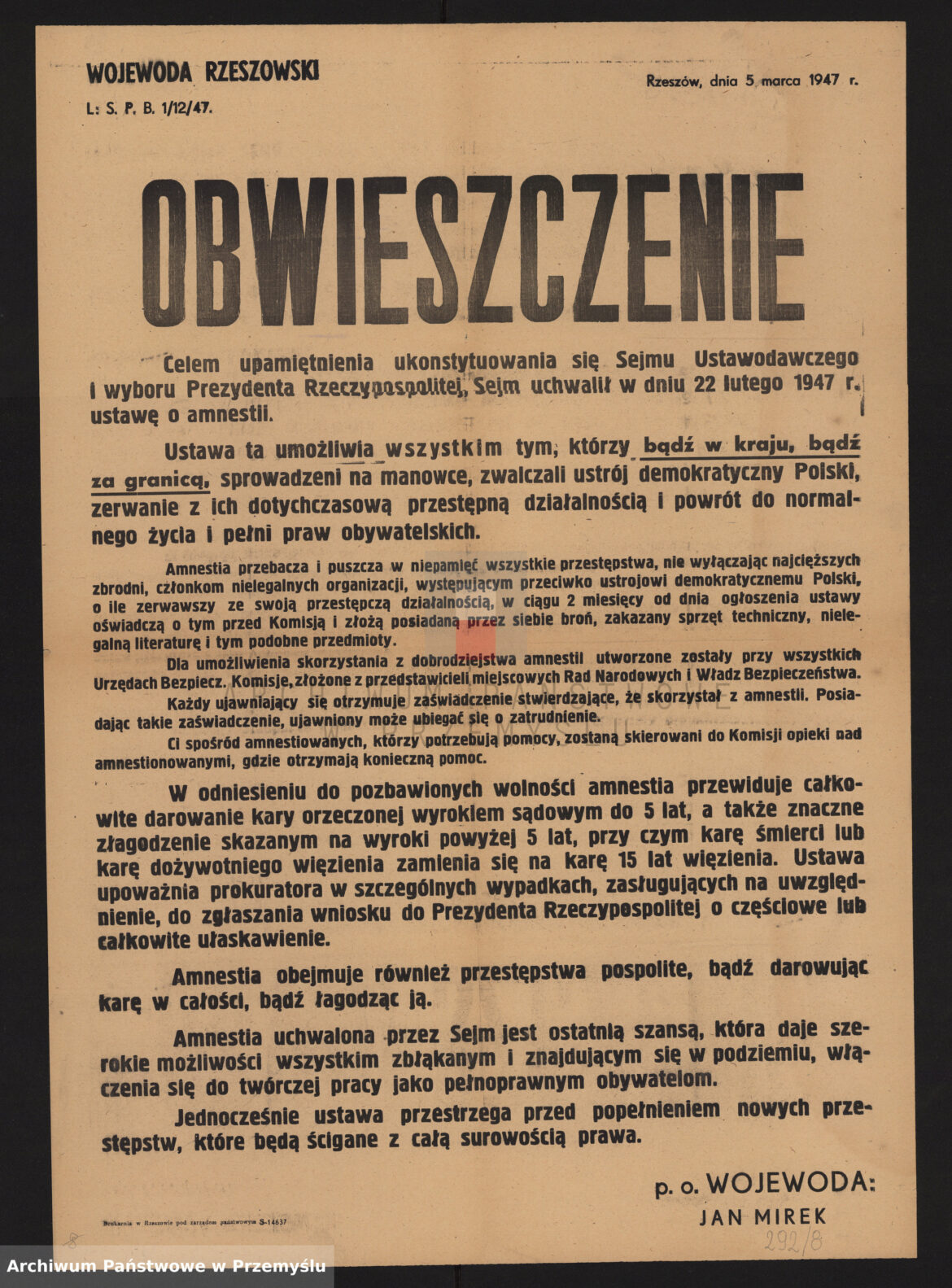76 years ago, precisely on 22 February 1947, the Polish Legislative Sejm passed an amnesty law for soldiers and members of the anti-communist underground. In fact, it was a legal lie with which the communist authorities liquidated the last points of armed resistance. As a result, instead of the desired freedom, underground soldiers often received long prison sentences, even the death penalty.
The announcement of the amnesty one month after the rigged parliamentary elections was a propaganda ploy to show the Polish public that the communist government was also giving political opponents a chance to return to a normal life. Many people believed the authorities’ assertions.
The Ministry of Public Security (UB) was entrusted with supervising the implementation of the law. For two months, former soldiers of Home Army, the “Freedom and Independence” Association, the Peasant Battalions or the National Armed Forces disclosed their underground activities and handed in their weapons. As part of the disclosure action, 53,517 people reported to the amnesty commissions, while 23,257 were released from prisons and detention centres.
The law only theoretically guaranteed exoneration from the charge of activity to the detriment of the People’s Republic of Poland or a significant reduction of sentences already passed. In reality, it turned out to be a sophisticated, well-planned operation. UB functionaries, using information provided by the revealing partisans (personal data, pseudonym, address, organisational affiliation and personalities of commanders) worked out and then liquidated the majority of active units that operated in the forests. Eventually, after the amnesty action, between 1,100 and 1,800 soldiers remained in the underground. This group no longer presented a real threat to the communist system in Poland.





